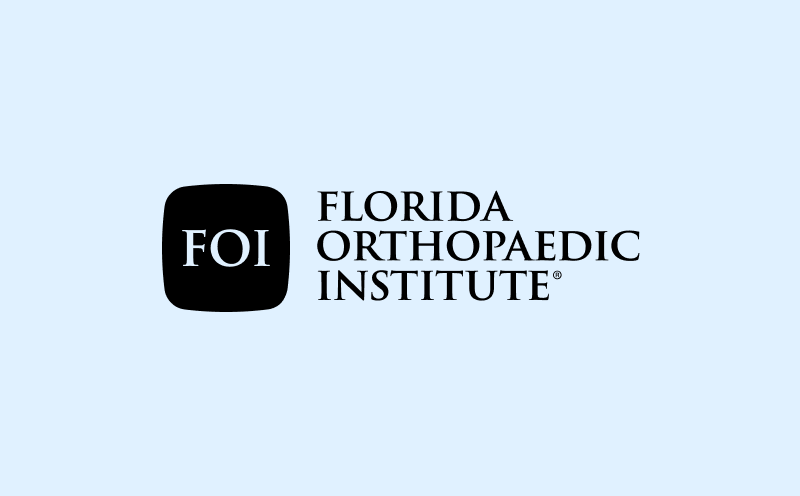Customer Story
Florida Orthopaedic Institute unites disparate systems for a reliable telecom solution

Customer Story

Challenge: Recent growth powered by mergers and acquisitions resulted in disparate phone systems, high downtime, and poor voice quality.
Solution: Microsoft Teams with Direct Routing, using Sinch’s reliable voice network and a cost-per-call pricing model for budget-friendly, reliable voice services.
Results: Unified all systems within facilities and departments with Microsoft Teams, reducing expenses, boosting administrative productivity and uptime.
“Users have said, ‘I can’t believe how clear the audio is’ and ‘I can understand patients so much better…without exception, there has been a significant increase in quality.“
Healthcare facilities rely on voice services to communicate internally and share vital information with patients. Downtime and poor-quality communications not only impact the effectiveness of patient care provided, but they often increase operational costs.
Plus, with healthcare organizations in the United States requiring HIPAA compliance to protect patient privacy, creating a unified and secure communications experience is no easy task.
Florida Orthopaedic Institute recently grew through mergers and acquisitions (M&A), creating new telecom challenges for the institute. However, they were able to build a new cohesive, reliable, and compliant telecom solution for all new and existing facilities by working with Sinch and Synoptek.
After expanding through M&A, the institute had to unite telecom services throughout every location and accommodate remote workers without risking compliance. The facility also aimed to improve uptime, quality, and cost-effectiveness.
Newly acquired facilities had various disconnected voice solutions, such as on-premises systems and third-party UCaaS platforms.
Chris Patterson, director of IT and HIPAA Security Officer for the Institute, needed to establish a comprehensive solution throughout every facility. The new system needed high uptime, cost-effectiveness, HIPAA compliance, and advanced reporting. Patterson chose Microsoft Teams for the front end, but its voice services were initially too restrictive for the organization’s needs.
Teams offers Direct Routing to expand voice services, but after evaluating several potential partners, Patterson struggled to find the right solution to meet the company’s unique needs.
Finding the right Direct Routing partner led the Institute’s director to Sinch. We worked closely with Florida Orthopaedic to discover the Institute’s precise needs, then recommended involving our partner Synoptek to streamline the entire process.
Together, we explored how to unite all of the institute’s locations under one roof while meeting the organization’s unique compliance, reporting, and budgeting needs.
We were able to create a strategic solution bringing existing facilities together and paved the way for faster onboarding of future mergers and acquisitions.
Sinch now provides the underlying infrastructure for the facility’s voice services, while Synoptek is the new Direct Routing partner and provides customized solutions to meet the organization’s unique needs. The reliable Sinch voice network and Synoptek’s white-glove onboarding, flexible pricing models — including a Teams analytics dashboard and top-notch customer service — were also keys to success.
Going forward, the institute plans to introduce Sinch SMS and email services to enhance its communications further.
The institute’s new solution successfully united disparate phone systems, maintained compliance, improved voice quality, enhanced reliability, and even reduced operating costs.
The organization is on a cost-per-call model, which makes more sense for its usage than the typical price-per-user model since many employees are with patients more than they are online or on calls. The company saw a 73% reduction in telecom expenses for one division, which has fully transitioned to the new system — including the $8 per user phone costs of the Teams license.
The institute had 217 hours of disrupted service during business hours over three months with its previous vendor. With Sinch, it’s had zero hours of disrupted service, allowing employees to consistently be available for patients.
“It always puts a smile on my face to get a user on the Teams platform for the first time and hear comments like, ‘I can’t believe how clear the audio is’ and ‘I can understand patients so much better,’” says Patterson. “Users were weary of transitioning to headsets thinking the voice quality would be poor, but without exception, there has been a significant increase in quality.”
Administrative assistants reported a 32% reduction in time spent managing patient calls, too. SharePoint integration allowed easier tracking, classification, and responses to patient inquiries. The Teams transcription feature improved collaboration with medical assistants to address calls and voicemails as a team.
Additionally, the company is still growing, and onboarding new facilities can now move as fast as the business can accommodate. New numbers are allocated within minutes rather than 3-5 business days from the previous vendor. Patterson and his team have confidence in Sinch’s ability to handle more calls and work with them to quickly overcome any challenges.
Do you want to learn more about the Florida Orthopaedic Institute’s telecom journey? Watch our on-demand webinar to hear from Patterson and our experts.
And if your voice systems need their own rehab, talk to one of our experts today to learn how we can help!